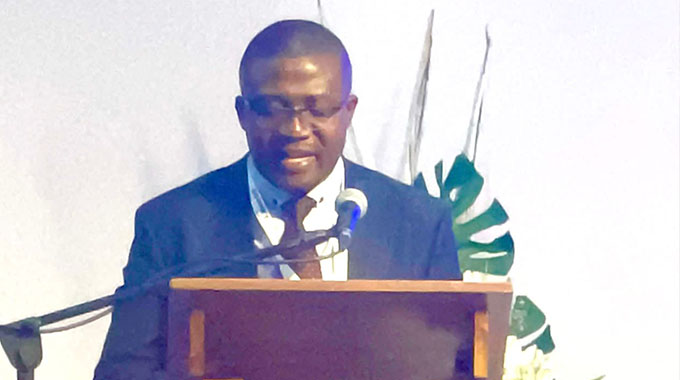US$30m ICT manufacturing plant on cards

“Take the dongle, for example, which is used to enable wireless internet connections, the plastic is sourced from South Korea while the chip is imported from South Africa,” notes Dr Dennis Magaya, managing director of local ICT firm RubieM Technologies.
The pioneering firm — headquartered in Mauritius and having a footprint in Harare, Namibia, Malawi and Angola — is already mulling establishing a manufacturing plant worth US$30 million, especially for SIM card and data card manufacturing.
Within the first year US$15 million will be invested, while over the following three years the figure will end up at US$30 million.
Plans are already at an advanced stage, with the funding, designs and other specifications in place.
However, the company is yet to settle the country where the plant will be domiciled.
It is generally expected that the project will be completed within the next 18 months.
Such has been the impact of the ICT revolution within the country and the Southern Africa Development Community (Sadc) region that a paradigm shift from being consumers of the products to being producers is now under way.
Government has set the tone and pace of the revolution through the scraping of duty on all ICT products.
But despite such efforts the rate of uptake has been prohibitive to spur increased volumes in both internet and voice traffic, though there has been some marked improvements in the latter.
Zimbabwe’s tele-density rate, reflecting the use of telecommunication services in the country, rose to 54 percent by the end of last year from 37 percent at the beginning of the year.
According to Dr Magaya, the country’s ICT infrastructure is “very weak” and there is scope for much Government intervention in order to ensure the digital divide between urban and rural areas is bridged.
“Well, to be frank the local ICT infrastructure is very weak and in some cases it seems as if the internet is viewed as a luxury. There is a lot of catching up we need to do in order to ensure that more people gain access to technologies, while at the same time improving the quality.
“If you look at South Africa and Botswana, for example, their infrastructure is robust. There is need to ensure that our policies for both data and internet are clear cut; we really need to take it to schools, hospitals, semi-urban areas and rural areas because the less traffic we use the more we pay.
“So, in reality the big boys — those who use huge traffic — pay less, while low traffic users like ourselves pay more.
“A deliberate policy has to be put in place to ensure that we increase traffic and begin to tilt the scales in our favour,” explained Dr Magaya.
He added that Zimbabwe, by virtue of being an inland country, is likely to experience unreliable internet services unless it establishes more redundant links to the submarine cables.
A consortium made up of private companies and parastatal TelOne recently managed to connect to the submarine cable through Mozambique, but the link is yet to be commissioned.
Also the country’s biggest mobile telecommunications company by market value, Econet Wireless Zimbabwe, through its subsidiary Liquid Telecom, is making efforts to link through South Africa and Mozambique.
RubieM Technologies has made pioneering work in the country and the region as consultants to Africom Zimbabwe, Telecom Namibia and ACL Malawi.
At the end of the month, the firm will be holding a conference in Mauritius through which it is working with the government in that country to support small to medium-scale enterprises and implement ICT projects.
Founder and managing director Dr Magaya is renowned in South Africa and is a holder of a PhD in Telecommunications from the University of Witwatersrand.
He started out selling telecommunication equipment in the region for Motorolla before joining Celsys as head of strategy in 2000 after its formation. In 2006 he subsequently established his own company, RubieM Technologies, which specialises in design, implementation and operations of ICT solutions.
Over the years, it has been able to provide assistance in tender drafting and evaluations; contract negotiations and drafting; mobile network design, rollout and operations; fixed-line telecommunications network planning, implementation and operations; switching fixed line, mobile and softswitch; radio network planning and operations and value added services’ (VAS) design and roll out.
It is believed that there is serious haemorrhage of financial resources from the Government through outsourcing services and materials that can easily be provided by local players.
Research has shown that companies are spending more than 30 percent of their capital expenditure (capex) on services.
Added Dr Magaya: “What is particularly disturbing is that every time one catches a flight from Johannesburg to Harare, the plane is full of experts from Israel, Europe and China who are coming to Zimbabwe to provide services that ideally can be provided by Zimbabweans.
“Some of the services are provided for solutions that are not even suited for local companies.
“And we believe that we need to unlearn the mentality that we can always be consumers.
“We can start to produce some of the solutions for ourselves.
“There is scope that we can make headway in software development, management, implementation and business processes.
“Companies are spending at least 30 percent of capex on services and this can be addressed through optimising processes.”
Since the formation of the inclusive Government in February 2009, the telecommunications sector has been one of the fastest growing sectors.
However, it is still lagging behind modern trends and Government has had to invest more than US$11 million in order to establish the country’s infrastructure backbone.
Private companies have also been aggressively making investments in the sector.
The Postal and Telecommunications Regulatory Authority of Zimbabwe (Potraz) is working with private companies to increase both the mobile and internet penetration rates, which remain worryingly low.-The Sunday Mail











Comments